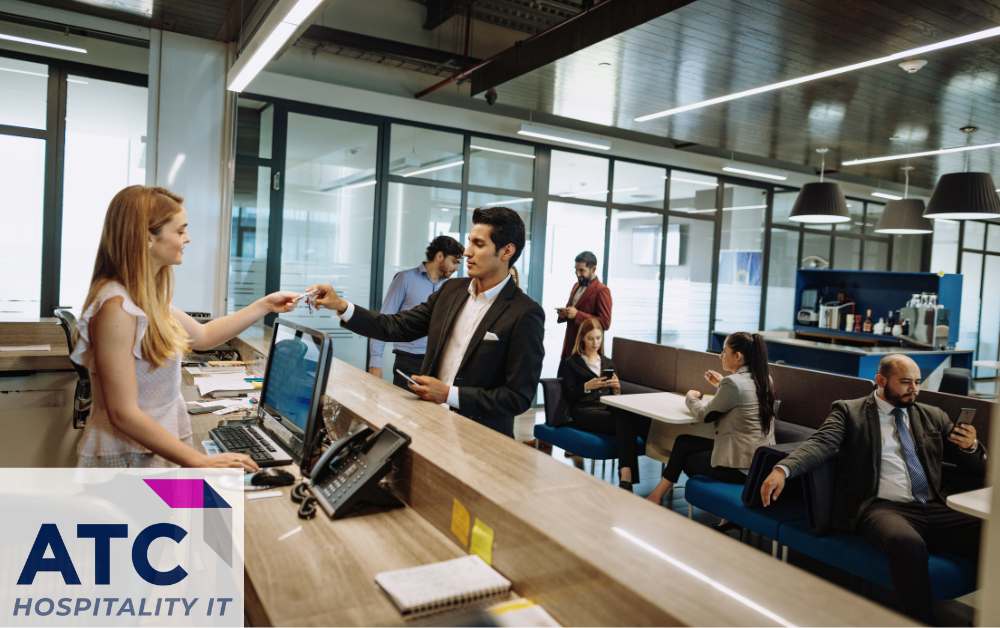
Operating a hotel, motel or tourist business is never easy. Fortunately, you can streamline hotel IT operations, amplify guest satisfaction and boost profitability with technology solutions. With help from consultants who have hospitality industry experience, your property can be at the forefront of innovation.
There are unique challenges in the hospitality industry that can be addressed by carefully selected technology solutions. As you dig deeper into this topic, it’s smart to understand the differences between building technology solutions and buying them as a service.
When Building Tech In-House Goes Wrong
When hospitality companies try to build tech in-house, they tend to underestimate the amount of resources and talent it takes to scale and maintain such technology. This technology requires far more upkeep than hotels.
While hotel brands build up their capital reserves and then renovate roughly every five to seven years, tech companies are constantly renovating their product lines daily through product sprints. The bottom line? Hospitality companies do not have the resources to compete with tech companies.
Charles Schwab, a financial juggernaut valued at more than $60 billion, chose a third- party vendor, Marketo, to helm their digital marketing efforts. Likewise, Citrix and Microsoft, technology companies themselves, chose Marketo’s technology so that they can stay focused on their core competencies.
The reason that the SaaS business model (software as a service) aligns value so well between buyers and sellers is that it is constantly being reinvented with the best-in-class tech wizards. When you sign up for SaaS, you are buying into what the product does today, as well as a well thought-out roadmap to the future.
Hotel companies that have tried to build tech in-house have failed because they have been unprepared for the massive investment that’s required. Unfortunately, the hotel industry is rife with examples of trying to build tech in-house with less-than-stellar results.
The collaboration amongst major hotel groups to create an online booking platform called Room Key is a prime example. This collaboration included Choice Hotels International, Hilton, Hyatt, InterContinental, Marriott and Wyndam. It was eventually shuttered after several missteps.
Every hotel executive knows what happens when you let a property go too long without a renovation. The same happens when software is not maintained properly.
Starwood was bought by Marriott for $13 billion. Yet the company has taken huge losses on technology investments. In Starwood’s 2015 10k filing, the company took a loss of $6 million for “technology related costs and expenses that were no longer deemed recoverable.” And back in 2013, Starwood’s annual report revealed an additional $19 million charge for “technology related expenses” that the company “decided to absorb,” because they couldn’t collect from managed and franchise properties.
Choice created Skytouch Technology, a cloud-based property management system (PMS). In 2014, Skytouch generated a net loss to the company of $20 million. The company has since stopped reporting the results of its Skytouch division, now including it within its “Corporate & Other” expense line. The company is also winding down its Choice Labs innovation division.
Even booking.com had to shut down its hotel software operations after some high-profile acquisitions. This is a testament to how tough the tech business really is.
Hotel Brands Should Buy Tech: ATC Can Help
Instead of trying to build tech solutions in-house, hotel brands should get better at buying them. That’s where ATC can help. ATC’s best practices and years of experience working with hoteliers — large and small — empower us to advise clients on how to scale with technology without having the buying power of a large enterprise.
With ATC’s hospitality digital transformation expertise and access to over 600 technology providers, you can empower your organization with a technology stack that separates you from the rest of the pack.
You can count on the ATC team to boost your productivity, enhance security, ensure compliance and offer speedy, welcoming and comprehensive support. If you’re considering switching your digital transformation provider, upgrading your technology strategy or simplifying your operations, we are here to help.
We customize our approach to fit your unique needs and develop a plan that meets or surpasses your objectives, making technology budgeting a breeze.
Some of the challenges our team can help your hospitality business overcome include:
- Uncertain strategic direction: Are you missing a clear and comprehensive technology strategy? We’ll take care of the roadmap to exceed your expectations.
- Time and money constraints: Implementing digital transformation initiatives can be costly and time-consuming, tapping into scarce resources of time and money. Save infrastructure, software and human resources costs and only pay for the services and solutions you need.
- Lack of in-house expertise: It’s nearly impossible to have deep expertise in every area of IT. Access our pool of specialized talent to implement cutting-edge, enterprise-level technologies and solutions for your business.
- Security concerns: With cyberattacks becoming a more regular occurrence, security is something that can’t be ignored. Protect against potential threats and ensure compliance with regulatory requirements with ATC.
Stay Ahead With the Right Technology Solutions
In today’s ever-evolving digital landscape, keeping up with your competitors is a must for survival. As the premier IT consulting firm for the hospitality industry, our team can help you implement the latest technology without breaking the budget.
ATC helps hotels of all sizes select the perfect solutions to a wide range of challenges. Some of the most sought-after IT technologies employed by hotel companies include:
- Property management systems (PMS): PMS software helps hotels manage reservations, check-ins, check-outs, room assignments, billing and other front- and back-office operations.
- Customer relationship management (CRM) systems: CRM systems allow hotels to track guest preferences, manage loyalty programs and personalize marketing efforts to enhance guest satisfaction and loyalty.
- Channel management systems: These systems enable hotels to manage their online distribution channels, including OTAs (online travel agencies) and direct booking channels, to optimize room rates, availability and inventory distribution.
- Revenue management systems: Revenue management software helps hotels optimize pricing strategies based on demand, market conditions and competitor pricing to maximize revenue and profitability.
- Point of sale (POS) systems: POS systems are used in hotel restaurants, bars, gift shops and other outlets to process payments, track sales, manage inventory and generate reports.
- Guest Wi-Fi and internet connectivity: High-speed internet access is essential for modern travelers and hotels invest in robust Wi-Fi infrastructure to provide reliable internet connectivity throughout their properties.
- Mobile apps: Hotels develop mobile apps that allow guests to book rooms, check-in/out, access digital room keys, request services and communicate with staff, enhancing convenience and efficiency.
- Energy management Systems (EMS): EMS helps hotels monitor and control energy consumption, optimize HVAC systems and implement energy-saving initiatives to reduce costs and environmental impact.
- Digital dignage and interactive displays: Hotels use digital signage and interactive displays in lobbies, conference rooms and other public areas to provide information, promote services and enhance guest engagement.
- Security and surveillance systems: Hotels deploy advanced security and surveillance systems, including CCTV cameras, access control systems and biometric authentication to ensure guest safety and protect property assets.
- Data analytics and business intelligence tools: Hotels leverage data analytics and business intelligence tools to analyze guest behavior, monitor performance metrics and make informed decisions to improve operational efficiency and guest satisfaction.
- Virtual reality (VR) and augmented reality (AR): Some hotels use VR and AR technologies to provide immersive experiences for guests, such as virtual tours of rooms and amenities or interactive augmented reality guides.
Future-Proof Your Hospitality Operations
By leveraging these IT technologies, hotel companies can enhance their competitiveness, improve operational efficiency and deliver exceptional guest experiences in an increasingly digital and interconnected world.
From strategic IT road mapping to sophisticated technology deployment, ATC’s Hospitality IT division customizes a playbook to win at every guest touchpoint. Contact us today to see how we can help you.
